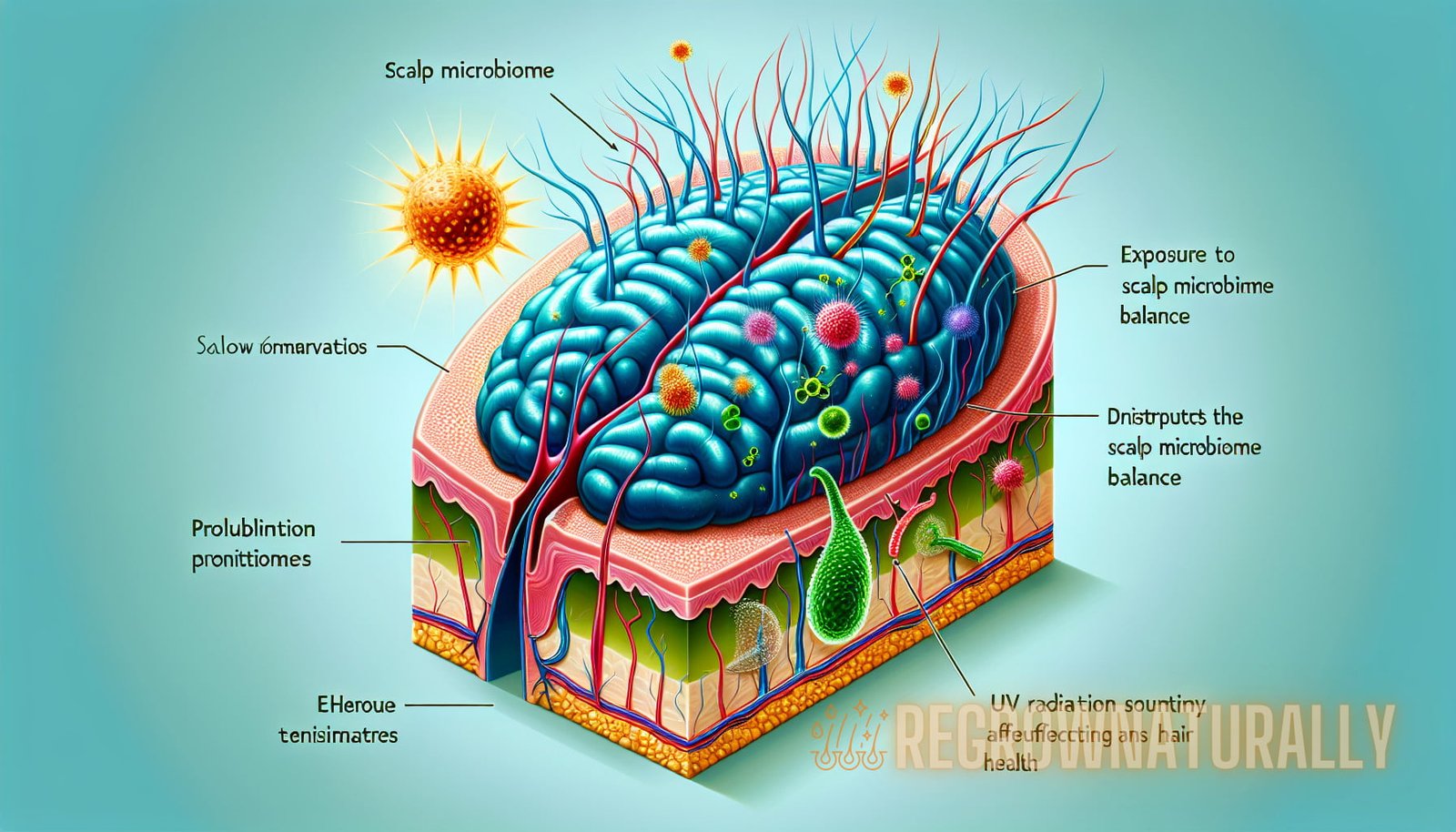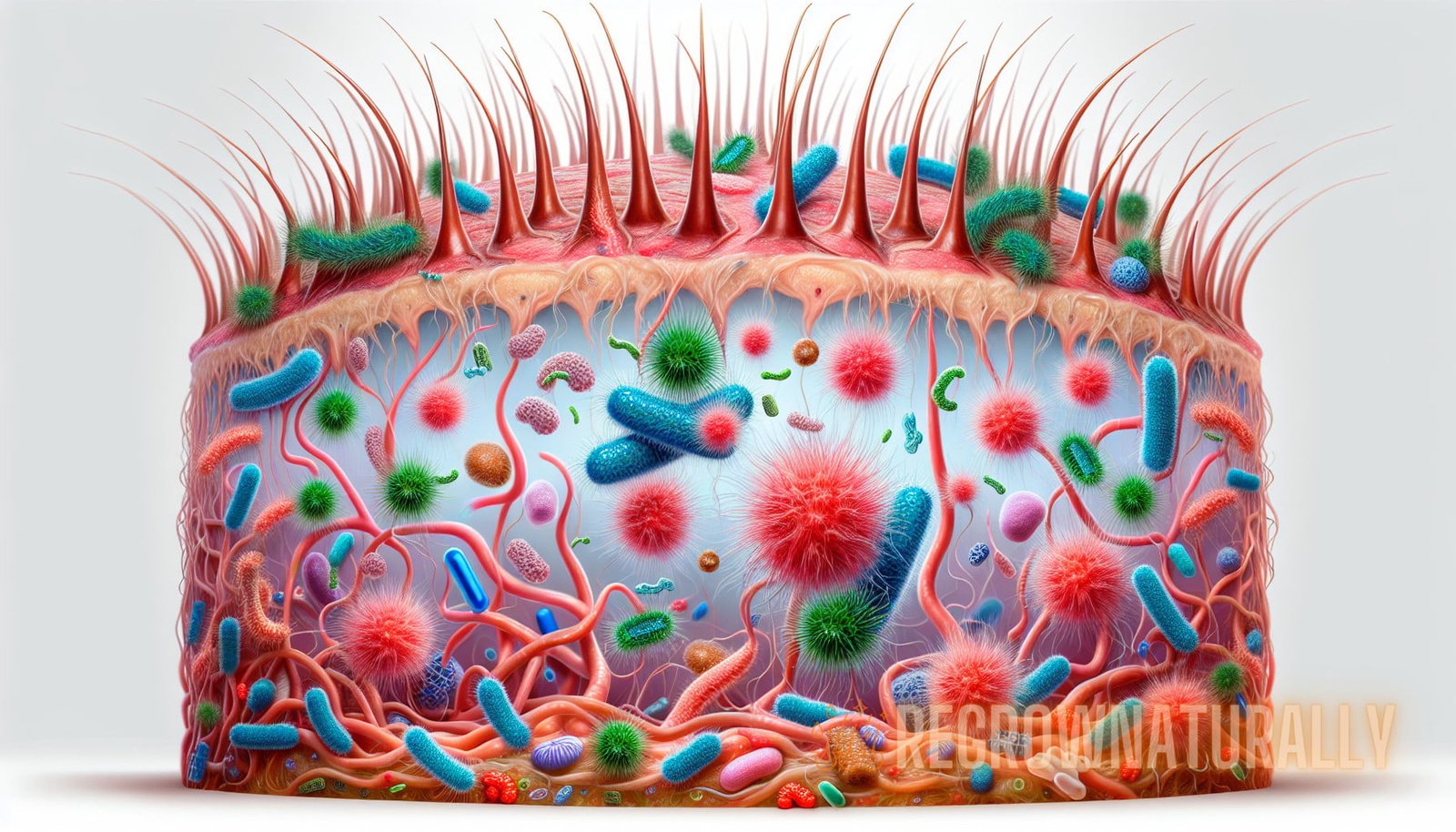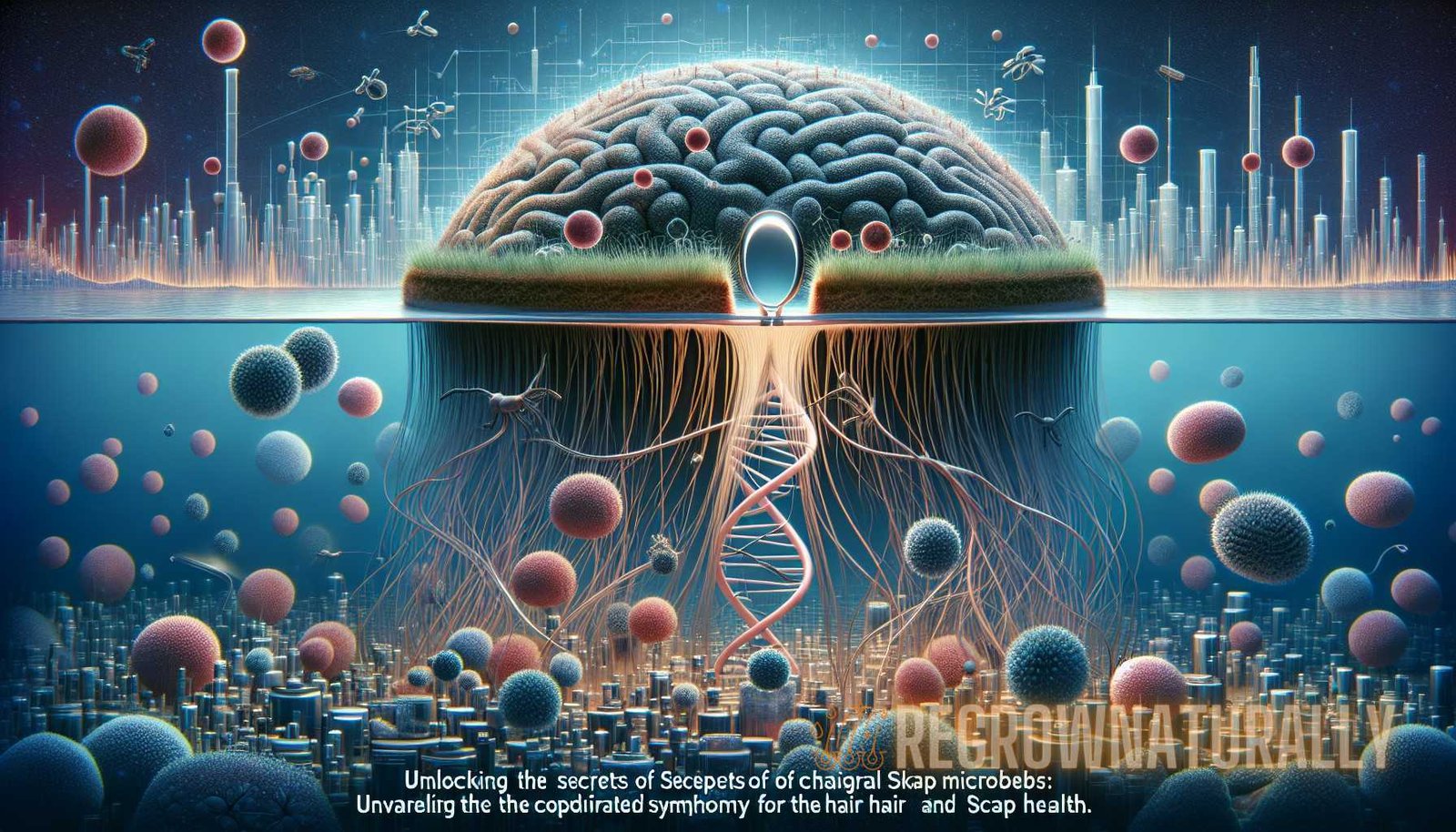The Scalp Microbiome: Unraveling the Hidden Impacts on Hair Health and Overall Well-being
The scalp, covered by a dense network of hair follicles, is home to a complex ecosystem of microorganisms known as the scalp microbiome. This intricate community of bacteria, fungi, and viruses plays a crucial role in maintaining a healthy scalp and, consequently, promoting hair health and overall well-being. However, the scalp microbiome and its significance have often gone unnoticed, overshadowed by the focus on skin microbiomes. In this article, we will explore the fascinating world of the scalp microbiome, unravel its hidden impacts on hair health, and shed light on the importance of maintaining a balanced and diverse microbial environment on the scalp.
Understanding the Scalp Microbiome
The scalp microbiome refers to the collection of microorganisms that reside on the scalp. Like other microbiomes in the human body, such as the gut microbiome, the scalp microbiome is a unique and dynamic community. It is influenced by various factors, including genetics, environmental factors, hygiene practices, and even the personal care products used on the scalp.
Research has shown that the scalp microbiome is predominantly composed of bacteria, specifically the phyla Actinobacteria, Firmicutes, and Proteobacteria. These bacteria play essential roles in maintaining a healthy scalp by promoting the production of antimicrobial peptides, regulating sebum production, and modulating the immune response.
In addition to bacteria, fungi, particularly the Malassezia genus, are also present on the scalp. Although Malassezia is a natural resident of the scalp, an overgrowth of this yeast can lead to scalp conditions such as dandruff and seborrheic dermatitis.
Furthermore, the scalp microbiome is home to a diverse array of viruses, including bacteriophages that specifically target and control bacteria populations. These viruses add an additional layer of complexity to the scalp microbiome and contribute to its overall balance and stability.
The Role of the Scalp Microbiome in Hair Health
The scalp microbiome has a profound impact on hair health, acting as a crucial regulator of the hair growth cycle and the quality of hair fibers. Here are some of the key ways in which the scalp microbiome influences hair health:
1. Nutrient Metabolism:
Microorganisms in the scalp microbiome participate in the metabolism of various nutrients, including amino acids, vitamins, and fatty acids. This metabolic activity is essential for providing the necessary building blocks for hair growth and maintaining the overall health and vitality of the hair.
2. Sebum Regulation:
The scalp microbiome helps regulate sebum production, a natural oil produced by the sebaceous glands in the scalp. Sebum acts as a protective barrier for the scalp and hair, lubricating the hair shaft and preventing excessive moisture loss. However, an imbalance in the scalp microbiome can disrupt sebum regulation, leading to either an overproduction or underproduction of sebum, which can have negative effects on hair health.
3. Immune Response:
The scalp microbiome plays a critical role in modulating the immune response on the scalp. The microorganisms in the microbiome interact with the immune cells present in the scalp, influencing their activity and response to various stimuli. An imbalanced or disrupted scalp microbiome can result in an overactive immune response, leading to chronic inflammation and conditions such as scalp psoriasis or alopecia areata.
4. Scalp Condition Control:
The scalp microbiome helps maintain a balanced and healthy scalp environment, preventing the overgrowth of harmful microorganisms, such as pathogenic bacteria or fungi. Imbalances in the scalp microbiome can create a favorable environment for the proliferation of these harmful microorganisms, leading to scalp conditions such as dandruff, eczema, or folliculitis.
The Impact of External Factors on the Scalp Microbiome
The scalp microbiome is highly susceptible to external factors that can disrupt its balance and diversity. Here are some common factors that can influence the scalp microbiome:
1. Personal Care Products:
The regular use of certain personal care products, such as shampoos and conditioners containing harsh chemicals or antibacterial agents, can disrupt the balance of the scalp microbiome. These products can strip away the beneficial microorganisms and create an environment that favors the growth of harmful microorganisms. It is important to choose gentle, pH-balanced products that support the health of the scalp microbiome.
2. Environmental Factors:

The environment in which we live can have a significant impact on the scalp microbiome. Exposure to pollutants, UV radiation, and extreme temperatures can disrupt the balance of the microbiome and compromise the overall health of the scalp.
3. Hygiene Practices:
Excessive washing of the scalp or using harsh cleansers can disturb the delicate balance of the scalp microbiome. While it is essential to keep the scalp clean, it is equally important to adopt a gentle and balanced approach to scalp hygiene.
4. Diet and Lifestyle:
Our diet and lifestyle choices can influence the health and diversity of the scalp microbiome. Consuming a nutrient-rich diet, staying hydrated, and maintaining overall wellness through regular exercise and stress management can support the health of the scalp microbiome.
Maintaining a Healthy Scalp Microbiome
In order to promote a healthy scalp microbiome, it is important to adopt practices that support its balance and diversity. Here are some tips for maintaining a healthy scalp microbiome:
1. Use Gentle and pH-Balanced Hair Care Products:
Choose hair care products that are gentle and pH-balanced to preserve the delicate balance of the scalp microbiome. Look for products that do not contain harsh detergents, sulfates, or antibacterial agents.
2. Avoid Over-washing or Over-brushing:
Excessive washing or brushing of the hair and scalp can disrupt the balance of the scalp microbiome. Opt for a regular washing routine that suits your scalp type and avoid aggressive brushing or combing.
3. Embrace Natural Remedies:
Natural remedies, such as essential oils and herbal infusions, can help support the balance and health of the scalp microbiome. Consider incorporating natural remedies into your scalp care routine to nourish and protect the scalp.
Internal Link: For effective natural remedies for scalp relief, including dandruff and dryness, check out this article.
4. Practice a Healthy Lifestyle:
Adopting a healthy lifestyle, including a balanced diet, regular exercise, and stress management, can have a positive impact on the health of the scalp microbiome. A holistic approach to wellness supports optimal scalp health and overall well-being.
5. Seek Professional Advice:
If you are experiencing persistent scalp issues or have concerns about your scalp microbiome, it is always recommended to consult a dermatologist or trichologist. These professionals can provide personalized advice and guidance based on your specific needs.
Conclusion
The scalp microbiome is a hidden world that holds immense importance for hair health and overall well-being. Understanding the complex interactions between the scalp microbiome and various factors can help us cultivate a healthier and more diverse microbial environment on our scalp. By adopting gentle hair care practices, incorporating natural remedies, and embracing a holistic approach to wellness, we can support the balance and vitality of our scalp microbiome, leading to healthier, more beautiful hair.
Internal Link: To learn more about the key to unlocking hair regrowth through optimal scalp care, read this article.
External Link: For additional information on the scalp microbiome, you can visit the Wikipedia page dedicated to this topic.



